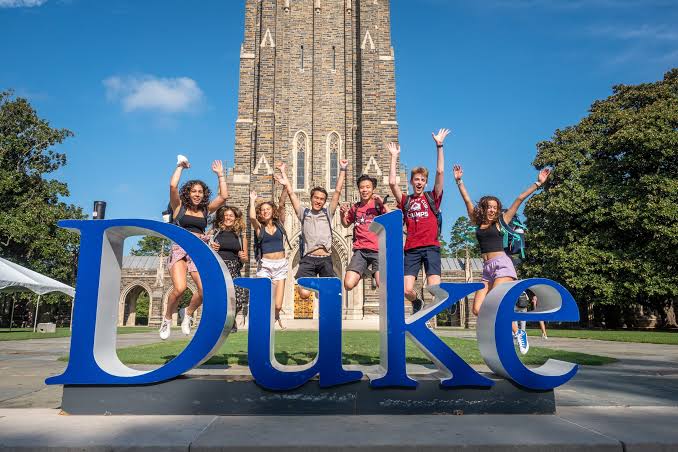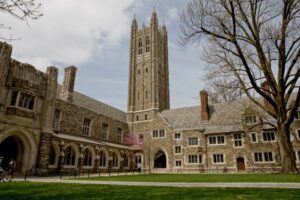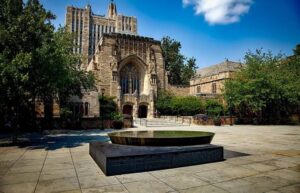
Duke University, located in Durham, North Carolina, is a prestigious private research university known for its outstanding academic programs, vibrant campus life, and commitment to global engagement. For prospective students aiming to join the Duke community, understanding the admissions process, academic offerings, and campus resources is essential. This guide provides comprehensive insights on how to study at Duke University.
Overview of Duke University
History and Legacy
Established in 1838, Duke University has a rich history marked by academic excellence and innovation. It has evolved into one of the leading research institutions in the world, offering a diverse range of undergraduate and graduate programs.
Campus and Facilities
Duke’s campus spans over 8,600 acres and includes the beautiful Duke Forest, the Duke University Chapel, and the renowned Sarah P. Duke Gardens. The campus is divided into East, West, and Central campuses, each with its unique character and facilities.
Admission Requirements
Undergraduate Admissions
Duke’s undergraduate admissions are highly selective, with a focus on academic achievement, extracurricular involvement, and personal character. Key components include:
- Standardized Tests: SAT or ACT scores (optional for the 2023-2024 application cycle).
- High School Transcript: Strong GPA with challenging coursework (AP, IB, honors).
- Letters of Recommendation: Typically two from teachers and one from a counselor.
- Personal Essays: Reflective and engaging essays that highlight your personality and experiences.
- Extracurricular Activities: Leadership roles, community service, and other significant commitments.
Graduate Admissions
Graduate programs at Duke have specific requirements depending on the field of study. Generally, you will need:
- Bachelor’s Degree: From an accredited institution.
- Standardized Tests: GRE, GMAT, LSAT, or MCAT scores as required by the program.
- Transcripts: Detailed academic records.
- Letters of Recommendation: Usually three, from academic or professional references.
- Personal Statement: Articulating your goals and why you chose Duke.
- Resume/CV: Highlighting relevant experiences and achievements.
For detailed requirements, visit Duke’s Graduate Admissions Page.
Financial Aid and Scholarships
Undergraduate Financial Aid
Duke meets 100% of demonstrated financial need for all admitted students through a combination of grants, scholarships, work-study, and loans.
- Free Application for Federal Student Aid (FAFSA): Required for U.S. citizens and eligible non-citizens.
- CSS Profile: Required to assess financial need.
- Institutional Aid: Various scholarships based on merit and need.
Graduate Financial Aid
Financial aid for graduate students varies by program but often includes:
- Fellowships and Scholarships: Merit-based awards.
- Research and Teaching Assistantships: Providing stipends and tuition benefits.
- Loans: Federal and private loan options.
Explore more on Duke’s Financial Aid Page.
Academic Programs
Undergraduate Programs
Duke offers a wide array of undergraduate programs across its two primary colleges:
- Trinity College of Arts & Sciences: Humanities, Social Sciences, and Natural Sciences.
- Pratt School of Engineering: Biomedical, Civil, Environmental, Electrical, and Mechanical Engineering.
Graduate Programs
Duke is home to numerous top-ranked graduate programs across various disciplines:
- Fuqua School of Business: MBA, Executive MBA, and PhD programs.
- School of Medicine: MD, MD-PhD, and specialized medical programs.
- School of Law: JD, LLM, and SJD programs.
- Sanford School of Public Policy: MPP, MIDP, and PhD programs.
- Nicholas School of the Environment: MEM, MF, and PhD programs.
For a complete list of programs, visit Duke’s Academics Page.
Campus Life and Resources
Housing and Dining
Duke guarantees housing for all first-year students and offers various housing options, including traditional dormitories, suites, and apartments. Dining services provide diverse meal plans catering to various dietary preferences.
Student Organizations
With over 400 student organizations, Duke offers numerous opportunities to get involved, from cultural clubs and academic societies to sports teams and volunteer groups.
Health and Wellness
Duke provides comprehensive health services through Duke Student Health and Counseling and Psychological Services (CAPS). Fitness centers, wellness workshops, and recreational activities are also available.
Career Services
Duke’s Career Center supports students with internships, job placements, and career counseling. They host career fairs, networking events, and offer resources for resume building and interview preparation.
Learn more at Duke’s Student Life Page.
Application Process
Step-by-Step Guide
- Research Programs: Identify the programs that align with your interests and career goals.
- Visit Campus (if possible): Attend tours and info sessions or explore virtual tours.
- Prepare Application Materials: Gather transcripts, test scores, letters of recommendation, and craft your essays.
- Submit Applications: Use the Common Application for undergraduates or the specific graduate program applications.
- Financial Aid Forms: Complete the FAFSA and CSS Profile.
- Interviews: Participate in any required interviews (varies by program).
- Check Application Status: Regularly monitor your application portal for updates.
For more details, visit Duke’s Admissions Page.
Living in Durham
City Overview
Durham, known as the “Bull City,” is a vibrant city with a rich history and a growing cultural scene. Living in Durham offers students an array of experiences, from historic sites to modern attractions like the American Tobacco Campus.
Housing Options
- On-Campus Housing: Convenient and secure, with a strong sense of community.
- Off-Campus Housing: Numerous apartments and houses are available within walking distance or a short commute.
Transportation
Durham has a reliable public transportation system, including buses and the Duke Transit system, making commuting around the city and to campus easy.
Cost of Living
The cost of living in Durham is relatively affordable compared to major metropolitan areas, but students should still budget for rent, food, and other expenses.
For more about living in Durham, visit Discover Durham.
FAQs
What is the acceptance rate for Duke University?
Duke’s acceptance rate is highly competitive, typically around 7-8%.
Are interviews required for admission?
Interviews are recommended but not required for undergraduate admissions. Graduate program interview requirements vary.
What financial aid options are available for international students?
International students are eligible for need-based aid, and Duke meets 100% of demonstrated financial need.
Can I transfer to Duke from another university?
Yes, Duke accepts transfer students, though the process is competitive and dependent on available space in the desired program.
What is the student-to-faculty ratio?
The student-to-faculty ratio at Duke is approximately 6:1, ensuring personalized attention and support.
For more FAQs, visit Duke’s FAQ Page.
Conclusion
Studying at Duke University in Durham, North Carolina, is a goal that requires dedication, preparation, and a thorough understanding of the admissions process. With its blend of academic excellence, cutting-edge resources, and vibrant campus life, Duke offers an enriching environment for academic and personal growth.
Whether you’re aiming for undergraduate or graduate studies, this guide provides the essential information to help you embark on your journey at one of the world’s leading universities. For more detailed information, always refer to the official Duke University website.






